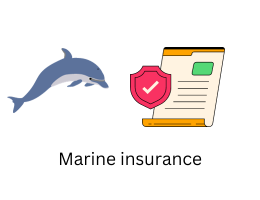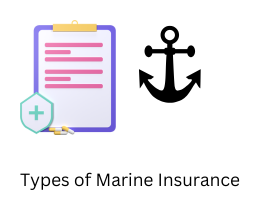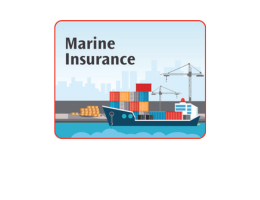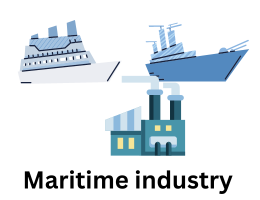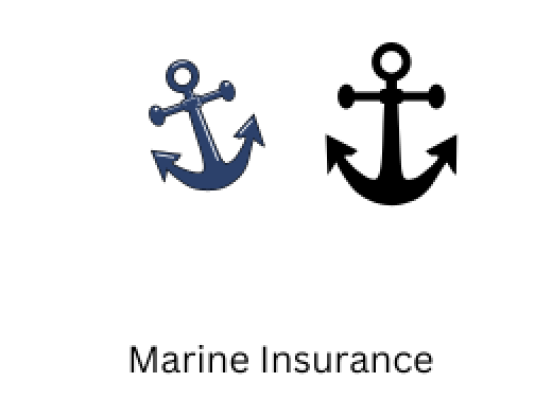
Key Factors to Consider When Choosing a Marine Insurance Policy
- By admin --
- Tuesday, 30 May, 2023
Introduction: Marine insurance plays a vital role in protecting individuals and businesses involved in maritime activities. Whether you're a shipowner, cargo owner, or marine operator, selecting the right marine insurance policy is crucial to safeguarding your assets and mitigating financial risks. In this guide, we will discuss the key factors to consider when choosing a marine insurance policy to ensure you have the appropriate coverage for your specific needs.
-
Understanding Your Needs: Before diving into the complexities of marine insurance, it's important to evaluate your specific needs. Assess the nature of your marine operations, the type of cargo you handle, and the risks associated with your activities. Are you involved in international shipping, yacht ownership, or offshore operations? Understanding your unique requirements will help you determine the type and extent of coverage you need.
-
Reputable Insurer: When it comes to marine insurance, selecting a reputable insurer is of utmost importance. Research and evaluate insurance companies that specialize in marine insurance, and consider their financial stability, reputation, and expertise in the field. Look for insurers with a strong track record of prompt claims settlement and excellent customer service.
-
Coverage Options: Marine insurance policies offer various coverage options tailored to specific risks. Consider the following coverage types based on your needs:
a. Hull and Machinery Insurance: This coverage protects the vessel itself against physical damage, including collision, fire, and sinking.
b. Protection and Indemnity (P&I) Insurance: P&I coverage provides liability protection for vessel owners, operators, and crew members against claims arising from third-party injuries, property damage, pollution, and legal expenses.
c. Cargo Insurance: If you're involved in transporting goods, cargo insurance is crucial to protect against loss or damage to the cargo during transit.
d. War and Strikes Insurance: This coverage provides protection against losses resulting from war-related risks or strikes that may affect your marine operations.
e. Loss of Hire Insurance: Loss of hire insurance compensates for loss of income due to vessel damage or loss, allowing you to cover ongoing expenses during repairs or replacement.
-
Policy Exclusions and Limitations: Thoroughly review the policy's exclusions and limitations to understand what risks are not covered. Common exclusions may include wear and tear, pre-existing damages, intentional acts, and certain high-risk areas. It's crucial to have a clear understanding of what is included and excluded from the policy to avoid any surprises during a claim.
-
Geographical Scope: Consider the geographical scope of the policy. If your operations involve international shipping, ensure that the policy covers the regions and waters where you operate. Verify if there are any territorial limits or restrictions that may affect your coverage.
-
Deductibles and Limits: Evaluate the deductibles and limits of the insurance policy. Deductibles represent the amount you must pay out of pocket before the insurance coverage kicks in. Assess whether the deductibles are reasonable and affordable for your operations. Additionally, ensure that the policy limits adequately cover the potential losses you may incur.
-
Claims Process and Support: Examine the insurer's claims handling process and support. A streamlined and efficient claims process is crucial in the event of an incident. Look for insurers with a reputation for prompt and fair claims settlements, as well as dedicated claims handling support to guide you through the process.
-
Risk Assessment and Loss Control: Some marine insurers offer risk assessment and loss control services to help you identify potential risks, implement safety measures, and reduce the likelihood of incidents. Consider insurers that provide value-added services to improve your risk management practices.
-
Premiums and Payment Options: Compare premium quotes from different insurers, considering the coverage provided and the insurer's reputation. Be cautious of extremely low premiums, as they may indicate insufficient coverage or unreliable insurers. Additionally, inquire about the payment options available, such as annual or installment payments, to ensure they align with your financial preferences.
-
Policy Terms and Conditions: Thoroughly review the policy's terms and conditions, including cancellation and renewal terms, to ensure you have a clear understanding of your obligations and rights as a policyholder. Seek clarification from the insurer if any clauses or provisions are unclear or ambiguous.
Conclusion: Choosing the right marine insurance policy requires careful consideration of your specific needs, reputable insurers, coverage options, policy terms, and claims support. By evaluating these key factors, you can make an informed decision and ensure that your marine operations and assets are adequately protected from potential risks and losses.
Note: The word count of the text provided above is an approximation, and it may vary depending on formatting and other factors.


